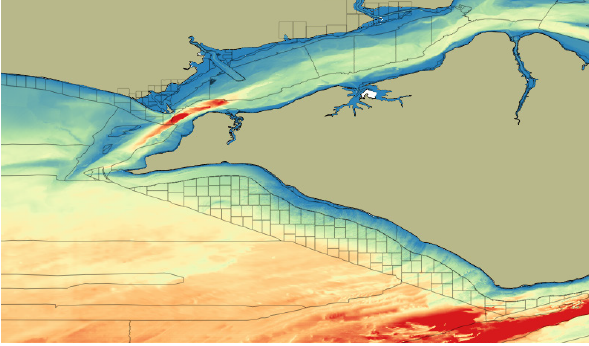This document summarises findings of existing studies related to the adequacy and data available for the North Sea basin. Although this review was not constrained by any particular North Sea data activity or study, a particular consideration was studies that have made use of EMODnet and Copernicus data services and where the experiences of using these data services have been reported.
This report is deliverable 02 to DG Mare under the North Sea Check Point project (Growth and Innovation in the Ocean Economy-Gaps and Priorities in Sea Basin and Observation Data MARE/2012/11: North Sea) contract reference [SI2.658142]. The work was undertaken by HR Wallingford Ltd with input from the project members IMARES and McAllister-Elliot & Partners (MEP).
EMODnet was established on the principles that there was a lot of public sector data available that was not used adequately to underpin decision making in support of commercial and policy objectives across Europe. This situation persisted ata national level, but compounded at the international level where it was practically impossible for organisations to use marine environmental data across and between member states. In the scope of this check point, the literature review examines if this is still the case following ten years operation of the EMODnet and Copernicus programmes, with a focus on commercial and non-governmental users.
The literature survey considered public reports, journal papers, grey literature and web published articles and used the Mendeley tool to collate and discuss the findings. In total 50 documents were reviewed. Based on an analysis of the documents, we are still very much at the 'Wild West' stage of the Blue Economy when it comes to data provision across the North Sea. If you know where to look, you could probably find the data you need, but it is not a case of 'Google, click, download1. Services that deliver data are increasing and some are maturing, however the vast majority would not be considered as 'trusted providers' or the 'go to' place for data. Indeed many are not discoverable via web searches either. Furthermore data portals or independent literature do not give widespread information on the value of the data for a particular use. In most cases it is incumbent on the user to download the data and then make assessment as to its value.
The Blue Economy comprises many actors and there is a desire to re-use data beyond its original collection intent, especially where the original collection was publicly funded. The key value add of public services like EMODnet is in providing data custodianship, version control and flexible download services. Allocating resources to these tasks should be seen as a priority over creating new data products and services that widen the gap between data 'as collected' and data 'as provided'. They also burden the public sector with the need to maintain these products. Actors in the Blue Economy will take sound data and create innovative products (including web services and apps); unfortunately they would be less likely to undertake data curation tasks.

